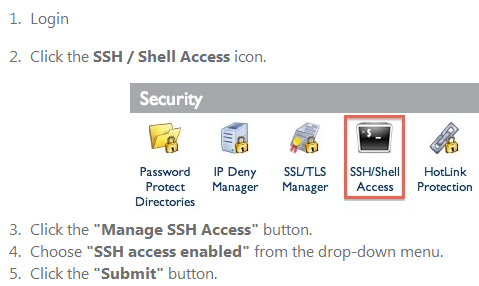reference
http://blog.modulus.io/build-your-first-http-server-in-nodejs
ask for help
https://webchat.freenode.net/
at channels : #node.js or #npm
0-you need SSH access
1-
http://nvm.sh, run the `curl` command in the readme
2-
then do
nvm install node && nvm alias default node
3-then read file with
cat ~/.bashrc
you must see two line mention nvm
3-restart terminal application
4-now on root you should have .nvm, type nvm --version
writes the version
5-execute
nvm install node && nvm alias default node
6-node installed
@ ~/ create a dir near public_html name it testnode then create a file into with command (or upload a index.js) :
echo data > index.js
go to url FTP software and edit it.. :
executing
~/testnode>node index.js
listens on :8080

<hT>
to uninstall
rm -rf testnode
rm -rf .nvm
remove the 2lines from ~/.bashrc
reference
Installing/Building Node.js - https://github.com/joyent/node/wiki/Installation
PuTTY - http://www.chiark.greenend.org.uk/
The Road to Node – Setting Up node.js on Bluehost - http://jonat.hn/wp/the-road-to-node-setting-up-node-js-on-bluehost/
Installing Node.js on Hostmonster / Bluehost Accounts - http://rcrisman.net/article/10/installing-nodejs-on-hostmonster-bluehost-accounts
Use one of these techniques to install node and npm without having to sudo
https://gist.github.com/isaacs/579814
or
https://www.joyent.com/blog/installing-node-and-npm/
similar - https://github.com/creationix/nvm/


http://blog.modulus.io/build-your-first-http-server-in-nodejs
ask for help
https://webchat.freenode.net/
at channels : #node.js or #npm
0-you need SSH access
1-
http://nvm.sh, run the `curl` command in the readme
2-
then do
nvm install node && nvm alias default node
3-then read file with
cat ~/.bashrc
you must see two line mention nvm
3-restart terminal application
4-now on root you should have .nvm, type nvm --version
writes the version
5-execute
nvm install node && nvm alias default node
6-node installed
@ ~/ create a dir near public_html name it testnode then create a file into with command (or upload a index.js) :
echo data > index.js
go to url FTP software and edit it.. :
JavaScript:
//Lets require/import the HTTP module
var http = require('http');
//Lets define a port we want to listen to
const PORT=8080;
//We need a function which handles requests and send response
function handleRequest(request, response){
response.end('It Works!! Path Hit: ' + request.url);
}
//Create a server
var server = http.createServer(handleRequest);
//Lets start our server
server.listen(PORT, function(){
//Callback triggered when server is successfully listening. Hurray!
console.log("Server listening on: http://localhost:%s", PORT);
});executing
~/testnode>node index.js
listens on :8080
<hT>
to uninstall
rm -rf testnode
rm -rf .nvm
remove the 2lines from ~/.bashrc
reference
Installing/Building Node.js - https://github.com/joyent/node/wiki/Installation
PuTTY - http://www.chiark.greenend.org.uk/
The Road to Node – Setting Up node.js on Bluehost - http://jonat.hn/wp/the-road-to-node-setting-up-node-js-on-bluehost/
Installing Node.js on Hostmonster / Bluehost Accounts - http://rcrisman.net/article/10/installing-nodejs-on-hostmonster-bluehost-accounts
Use one of these techniques to install node and npm without having to sudo
https://gist.github.com/isaacs/579814
or
https://www.joyent.com/blog/installing-node-and-npm/
similar - https://github.com/creationix/nvm/


